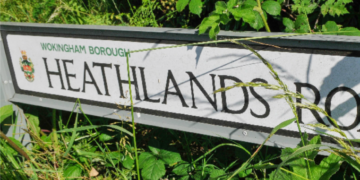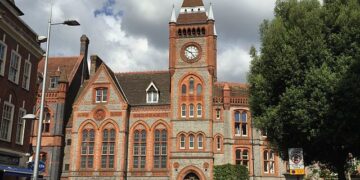The new Lifetime ISA (LISA) launches in just a few weeks’ time, giving younger people the chance to boost their savings by 25% thanks to a Government bonus.
We’re kicking off our series of columns in The Wokingham Paper by taking a closer look at how LISAs work and who is likely to benefit from the new product.
Contributions to the new scheme are limited to £4,000 pa, but if you save the maximum amount in any given year the Government will then add another £1,000.
LISAs can be taken out by anyone aged over 18 and under 40 (on April 6), with the Government bonus running on all contributions made until the investor turns 50. This could mean a potential windfall of up to £32,000, all of which is tax-free.
And remember, there’s interest to be added on top of this as well, although the bonus is only paid on your contributions.
LISAs are primarily aimed at first-time home buyers or people saving for their retirement.
If you’re purchasing property it must be your first home, UK-based and up to a maximum value of £450,000. The money can’t be used to purchase a buy-to-let property and the buyer can never have owned a property, or share of, through an inheritance. You’ll also need to be buying with a mortgage.
If you’re saving for old age you have to wait until you’re 60 before you can touch the cash otherwise you’ll lose the 25% bonus, including interest, and have to pay a 5% charge.
However, after 60 withdrawals of any amount are tax-free, or you can leave the money where it is to grow.
For those looking to get on the property ladder, taking out a LISA is a no-brainer and the bonus makes it a very attractive option.
For example, if a couple looking to buy their first home are both able to put the maximum amount into a LISA for five years, they would stand to gain £10,000, tax free in bonuses to put towards their first home.
This is a much better detail than the Help to Buy ISA – another Government scheme to help first-time buyers. This also offers a 25% bonus on savings. However the maximum payout is limited to just £3,000 in bonuses.
In terms of retirement saving the benefits of a LISA are more opaque and there has been a lot of debate over the pros and cons of LISAs v pension contributions. Much of this centres on individual tax circumstances and possible future changes to pension tax relief by the Government could also become a factor. More is likely to be known in the Budget next month (March).
Opening a LISA is very simple and is almost identical to opening a traditional ISA at bank, building society or investment manager.
The Government has set a minimum holding period of 12 months from account opening before withdrawals that include its bonus can be made.
It’s also worth remembering that from April the ISA allowance is increasing from £15,240 to £20,000. This can be a combination of a cash ISA, a stocks and shares ISA and the new innovative finance ISA, which we’ll cover at a later date. The £4,000 annual LISA limit forms part of your overall allowance.
At a glance:
- LISAs can be taken out by anyone aged over 18 and under 40 on April 6.
- Bonus paid annually this tax year then monthly.
- You can make contributions until you turn 50.
- If you’re purchasing property it must be your first home, up to a maximum value of £450,000.
- The money can’t be used for a buy-to-let property.
- The buyer can never have owned a property, or share of, through an inheritance.
- If you’re saving for old age you have to wait until you’re 60 before you can touch otherwise penalties apply.
- After 60 all withdrawals are tax-free.
- The value of your LISA can be passed on to your spouse or civil partner.
- Parents and grandparents can pay into a LISA opened by their child or grandchild.
- Interest is paid on your money and the bonus cash, and is compounded.
Opening a LISA is very simple and can be done through a bank, building society or investment manager.
Andy Pulford, Director and Independent Financial Adviser at Faron Partnership Ltd
Andy lives in Wokingham and has worked as a financial adviser for over 30 years. He is married with three grown-up children.
Faron Partnership offers personal financial advice, including retirement, investment and estate planning.
Any information or views expressed in this article should only be acted upon within the context of your own circumstances with the help and guidance of a professional financial adviser.
Faron Partnership Ltd is an independent financial adviser which is an appointed representative of ValidPath Ltd which is authorised and regulated by the Financial Conduct Authority.
Faron Partnership
Albany House, 14 Shute End, Wokingham RG40 1BJ
0118 974 0159 [email protected]
www.faronpartnership.co.uk














































